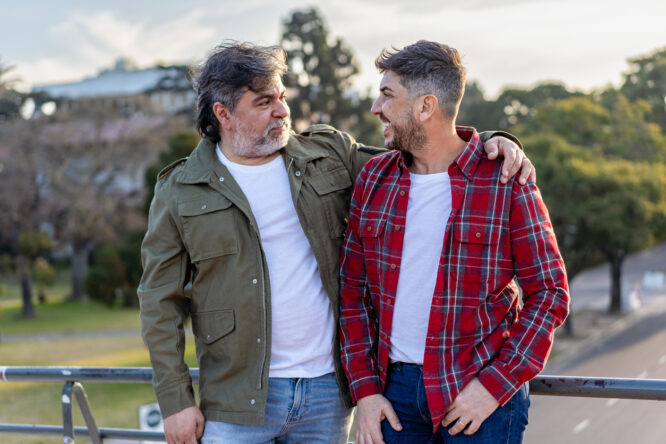Forgiveness is complicated at the best of times, but trying to forgive someone who never apologised is a whole different kind of emotional work.

It leaves you feeling stuck, waiting for an apology that might never come, wanting validation that might never arrive. The truth is, forgiveness without an apology is one of the most powerful things you can do for yourself because it takes the focus off what they owe you and puts it back where it belongs: on your own freedom. Here are some real, grounded ways to move toward forgiveness when the words “I’m sorry” never come.
1. Accept that closure might have to come from you.

One of the hardest but most freeing truths is that closure is not something you get from the person who hurt you—it’s something you create for yourself. You could wait forever for an apology, a confession, or some grand moment of realisation, but that wait keeps you emotionally chained to someone else’s lack of growth.
Choosing to create your own closure isn’t easy. It means mourning the apology you deserved and deciding you’re done needing it to heal. It’s a hard kind of bravery, but it gives you back the power you were unknowingly still giving away.
2. Recognise that forgiveness doesn’t mean excusing their behaviour.

A big block to forgiveness is thinking it means saying what happened was okay. It doesn’t. Forgiveness simply means you’re choosing not to let their wrongdoing have endless access to your energy and peace.
You can fully acknowledge that what they did was wrong, unfair, and hurtful, and still decide you’re finished carrying the bitterness around. It’s not about excusing the harm; it’s about deciding your life deserves better than staying frozen in it.
3. Let yourself fully feel the anger first.

Trying to leapfrog over your anger usually backfires. You can’t fake your way into forgiveness. If you were hurt, betrayed, dismissed, or disrespected, your anger is valid, and it deserves space to be felt.
Letting yourself rage, cry, vent, journal—whatever moves the emotions through you—isn’t “holding a grudge.” It’s part of the detox. Clearing out the pain is what makes real forgiveness even possible down the line, without bitterness hiding underneath it.
4. Remind yourself that forgiveness is for your healing, not theirs.

It’s tempting to think forgiveness somehow lets the other person off the hook, but real forgiveness isn’t about them walking away guilt-free—it’s about you walking away pain-free. They might never feel guilty. They might never understand the damage they did. Choosing to forgive is choosing not to let them have one more day of your mental real estate. It’s an act of radical self-respect, cutting the cord between their immaturity and your future peace.
5. Accept that some people are incapable of real accountability.

There are people who, for whatever reason—pride, fear, ego, emotional immaturity—simply can’t (or won’t!) take responsibility for the harm they cause. Expecting accountability from someone who has never shown emotional maturity is like expecting a fish to climb a tree.
It hurts because you know they’re capable of better if they tried. However, forgiveness begins when you accept that their failure to own their behaviour is not your failure. It’s their limitation, not your unworthiness.
6. Focus on what you can control, not what you wish you could.

It’s easy to get stuck spiralling: imagining the confrontation you wish you could have, rehearsing the apology they should say. Of course, none of that changes reality. The longer you stay tangled in what should happen, the longer you stay trapped in pain.
Flipping your focus back to what you can control—your boundaries, your healing, your next steps—isn’t giving up. It’s reclaiming your energy for the things that actually move your life forward, instead of staying stuck in cycles they’ll never complete for you.
7. Set new boundaries that reflect your growth.

Forgiveness doesn’t mean inviting someone back into your life the same way they were before. In fact, forgiveness often involves adjusting your relationship with that person, sometimes drastically.
Setting boundaries is how you honour what you learned from the pain. It could mean limiting contact, cutting ties completely, or simply choosing what parts of yourself they no longer get access to. Healing involves protecting your peace, not just wishing for different behaviour.
8. Release the fantasy that one day they’ll wake up and get it.

Many people stay stuck not because they can’t heal, but because they’re still secretly hoping one day the person will realise what they did, come running with an apology, and finally give them the closure they crave.
Letting go of that fantasy is painful, but it is freeing. The truth is, some people never get it. Not because you weren’t worthy of understanding, but because they aren’t ready, and they might never be. Your peace cannot depend on their personal growth journey.
9. Understand that healing doesn’t erase the memory.

Forgiveness doesn’t mean amnesia. You will still remember what happened. You will still have days when the old pain flashes through your mind. Healing is not erasing; it’s learning how to remember without reopening the wound every time. When you forgive, you are choosing to let the memory exist without letting it own you. You are keeping the wisdom while setting down the weight, which is a subtle but incredibly powerful shift.
10. Recognise when holding onto resentment is hurting you more than helping you.

At first, anger feels protective. It feels strong, like a wall between you and further hurt. However, as time goes on, resentment corrodes from the inside. It steals joy, trust, openness—all the things you deserve to have moving forward. Noticing when your anger is costing you more than it’s protecting you is a turning point. It’s the moment you stop fighting the past and start fighting for your own future instead.
11. Let your forgiveness be a process, not a performance.

Forgiveness is messy. Some days you feel light and free. Other days, an old hurt bubbles up and hits you harder than you expected. That doesn’t mean you are failing at forgiveness; it means you’re human. Real forgiveness isn’t about flipping a switch or performing constant grace. It’s about returning to your decision to heal, again and again, even on the days when it feels hard or unfair.
12. Treat yourself with tenderness through the messy middle.

It’s normal to judge yourself harshly during the forgiveness process: “Why can’t I let this go? Why does this still hurt?” But beating yourself up only layers more pain onto an already heavy load. Self-compassion is the fuel that keeps you moving forward. Talk to yourself like you would to someone you deeply love: patient, encouraging, forgiving, especially when you feel stuck or fragile.
13. Focus on the life you want to build beyond this hurt.

The real goal of forgiveness isn’t just moving on from what happened; it’s making room for the bigger, richer life waiting for you beyond it. Every ounce of energy you free from resentment becomes energy you can use to build something beautiful. When you picture your future, imagine it without the heaviness of old anger weighing it down. What would you do, create, invite in, or become if that weight wasn’t holding you back anymore?
14. Find meaning in how you survived, not how they hurt you.

The pain might never be “worth it.” You might never be grateful for what happened, but you can still be fiercely proud of the way you healed, the boundaries you set, the self-worth you rebuilt from the ashes. The meaning isn’t in what they did to you; it’s in what you chose to do with your pain. That meaning is yours to keep, no matter what they understand or admit.
15. Forgive because you deserve peace, not because they deserve forgiveness.

At the end of the day, forgiveness is an act of radical self-love. It’s you deciding that your heart, your mind, and your life are too precious to be tethered forever to someone else’s wrong choices. It’s you saying, “I choose freedom. I choose healing. I choose a life that is bigger and better than the hurt they left behind.” And you don’t need anyone else’s permission to make that choice starting today.




